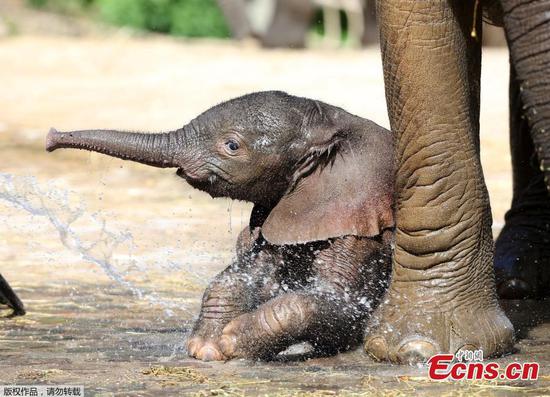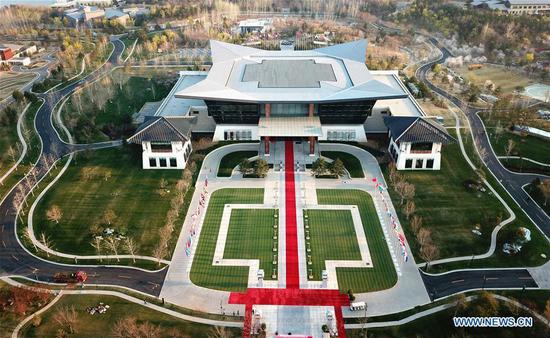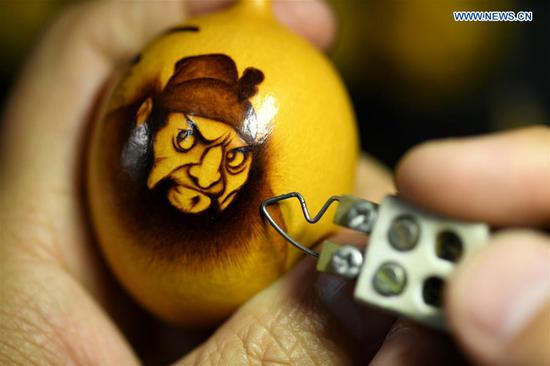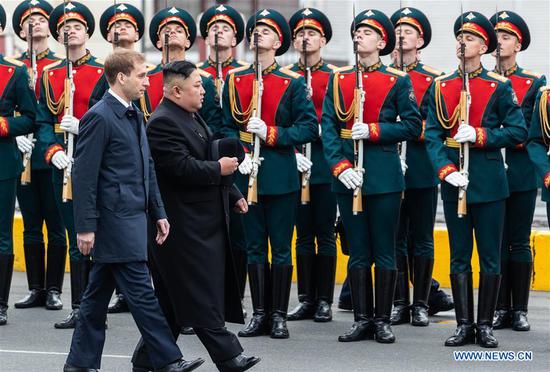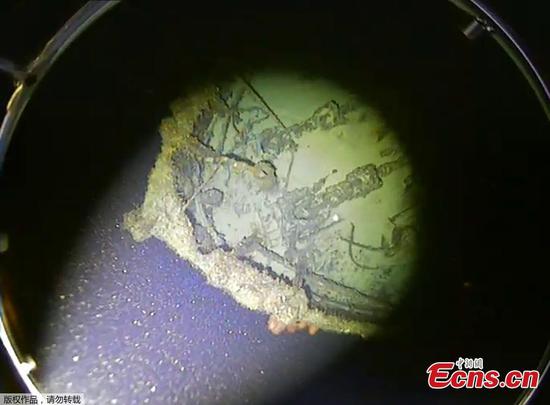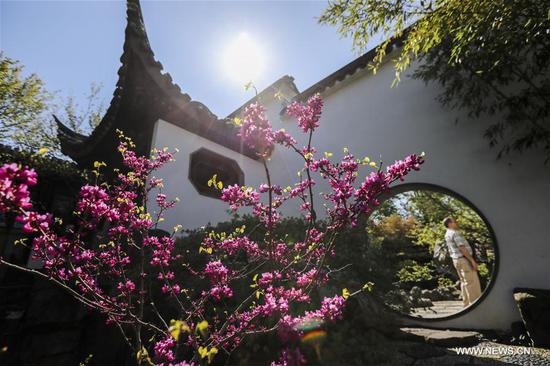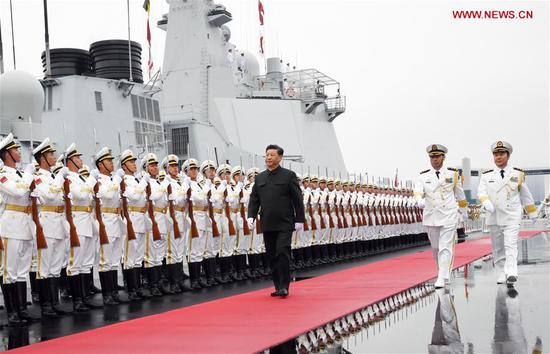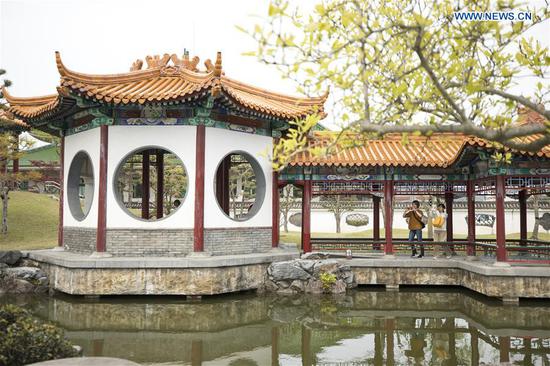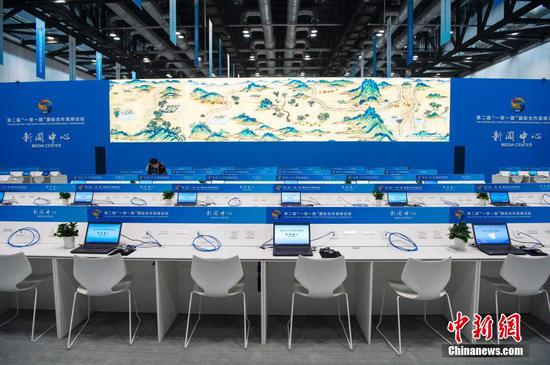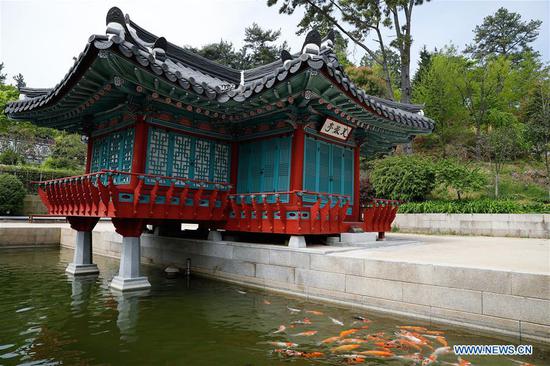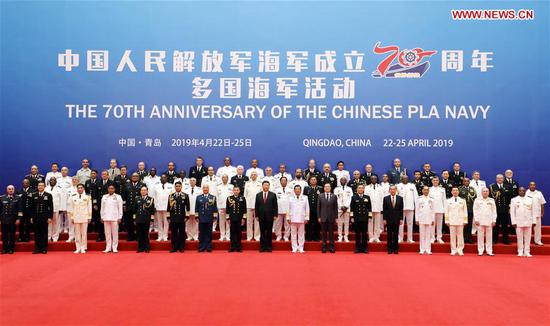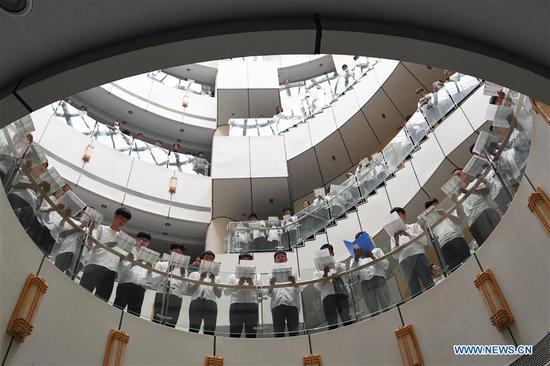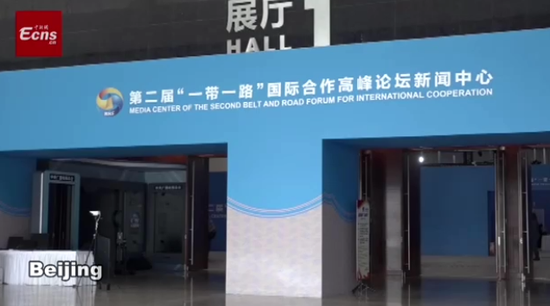China's top legislature on Tuesday passed amendments to two intellectual property rights (IPR) laws, enhancing protection for trademarks and trade secret, a move that experts said will further promote the technology industry's development while making China's investment environment friendlier.
The Standing Committee of the National People's Congress (NPC) on adopted amendments to a package of eight laws that would further improve the business environment.
Improper behavior involving trademark registration is tackled, and the penalties are also strengthened, according to the amendments on the Trademark Law.
"Trademark registration that is not for the purpose of use for business operations will be rejected," the amendment read.
The upper limits of infringements penalties have also been raised, the amendment showed.
"The crackdown on registering a large number of trademarks in order to make profits will improve the business environment and help enterprises to build brands with real value," Li Yong, a lawyer at Beijing-based law firm Globe-Law, told the Global Times Wednesday.
The latest amendments to the Anti-Unfair Competition Law, which had a substantial revision in 2017, are mainly focused on protecting trade secrets. The amendments add electronic means as a new way of illegal access, and the penalties have also been raised.
Trade secrets, which lacked legal protection in the past, have caused huge trouble for technology companies in protecting core technologies that can't publicly apply for patents, said Zhao Zhanling, an analyst at the Center for IPR Studies at the China University of Political Science and Law.
"Innovation in the high-technology industry will be substantially encouraged," Zhao said.
China has shown its determination to unwaveringly protect IPR for both domestic and foreign companies, Zhao added.
China has established an IPR protection law system that has complete categories, in line with international rules, Shen Changyu, head of the National Intellectual Property Administration, said on Wednesday in Beijing during the 2019 High-level Forum on China IP Protection.
China has almost joined every IPR international convention in the world, Shen said.
China's Supreme People's Court set up an IPR court that handles complex appeals such as patent litigations in January.
According to a survey released by the American Chamber of Commerce in China in February, 59 percent of the U.S. companies operating in China thought the country had made progress in protecting trademarks and brands over the past five years.
Foreign companies will have higher expectations for China's business environment as the nation keeps improving IPR protection, Zhao said.











